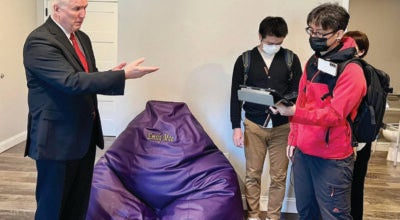GHA Autism Supports opens new facility
Published 2:26 pm Wednesday, November 3, 2021
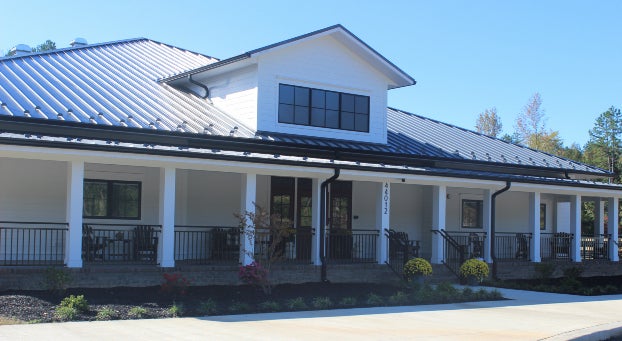
- The 50-acre Morrow Valley Farmstead, GHA Autism Supports' newest program, is now open.
|
Getting your Trinity Audio player ready...
|
After about a decade of planning, GHA Autism Supports has opened a new facility.
Morrow Valley Farmstead is a 10-bed, long-term care facility situated on 50 acres of land at the base of Morrow Mountain which will provide specialized services for aging individuals with Autism Spectrum Disorder (ASD) and other developmental disabilities with a focus on age-related developmental and physical needs, and care for chronic and/or debilitating medical conditions.
A $3.3 million investment, Morrow Valley Farmstead will create 25 new jobs, adding to the more than 250 employees who already work in the organization.
“This is a program where it’s all about what you want in your life,” GHA CEO Dawn Allen said.
Allen said each resident will have their own personalized schedule. If they want to sleep during the day, for example, and stay up at night, that’s fine. The key is about residents’ quality of life rather than quantity of life.
“It’s about individualized services and making those services about them, not trying to make a square peg fit into a round hole,” Chief Development Officer Beth Olivieri said.
The Farmstead is set to welcome its first four residents this month, with the other six expected to move in by the end of the year, Allen said. The ages of the residents, who are all from North Carolina, range from early 30s to the 60s.
There will be a registered nurse on duty at all times along with two to three certified nursing assistants. The medical director for the program will be Dr. Lenny Saltzman. There will also be physician assistants, occupational therapists and nursing students from Pfeiffer University that have the chance to spend time helping take care of the residents.
Piloting new telehealth technology
The program will offer 24-hour health services for the residents thanks to telehealth technologies such as the MedWand device. Shaped like a computer mouse, the device can be used for purposes such as taking a resident’s temperature, producing an electrocardiogram or EKG, acting as a stethoscope and as a oximeter pulse.
All of the resident’s key vitals will be stored within the device and can be quickly sent to medical professionals like Saltzman, who can access the data from a tablet or smartphone.
Since the device has not yet been approved for widespread, commercial use, GHA will be piloting the device for the company, MedWand Digital Health.
“Dr. Saltzman is so excited about this because he could actually be on vacation…and they can say, ‘Here, this person, we think they’ve got an ear infection’ and he can go in and look at it and he can say, ‘Yep,’ and tell the nurse to take an order to antibiotics or ear drops,” Allen said.
The technology will help reduce the out-of-home medical treatment that can often be difficult for many people with developmental disabilities, who often get nervous when being in environments like a doctor’s office.
Medical conditions, such as pneumonia and urinary tract infections, can be treated on site, avoiding multiple trips to the emergency room and hospitalizations.
“So you do not have to get in a car and drive anywhere, you do not have to wait in an office waiting area,” Allen said.
The plan is to eventually take all of the technology that the organization is piloting through the Farmstead and apply it to GHA’s other facilities, Allen said.
How the program came about
GHA had been discussing creating some sort of program that would provide specialized services to medically vulnerable individuals with autism and other developmental disabilities for many years.
Much of the inspiration behind the program came after the organization, which has been around since 1978 and serves people from across the state with autism, tried to find proper care for one of its individuals, a man in his 50s, who began to develop signs of dementia and needed medical care, beyond GHA’s capabilities, Allen said.
No local residential settings would accept him and the organization, after much searching, couldn’t find any facilities across the country or around the world that would be able to properly care for the man.
That’s when GHA had a “Field of Dreams”-type moment and decided to create their own model — one based upon utilizing telehealth to reduce the need for residents to leave the facility for medical care.
Though the idea of a program built largely on the virtual connection between patient and doctor might have initially seemed strange, the past two years with the COVID-19 pandemic have illustrated the importance of having such a robust online connection, Allen said.
GHA purchased the land in 2015 thanks to a $400,000 grant from the Cannon Foundation, which also gave an additional $100,000 for capital development a few years later.
“They were one of our biggest visionary donors that really saw the need for it,” Olivieri said.
Other major contributors included the Ireland Family Foundation, Cardinal Innovations Healthcare and the Jack Fanning Memorial Foundation, along with other private gifts.
About the facility
The first thing one notices about the 10,000-square-foot facility is its large and inviting porch, with tons of spacious seating. Numerous interior and exterior cameras are located outside and throughout the premises.
The common room is comprised of multiple sitting areas properly spaced out to allow each resident the freedom to do their own thing. Each area comes equipped with a television (along with wireless headsets), arrangeable Lovesac sofas and an oversized bean bag chair.
“We’re just trying to create this very calm environment,” Allen said.
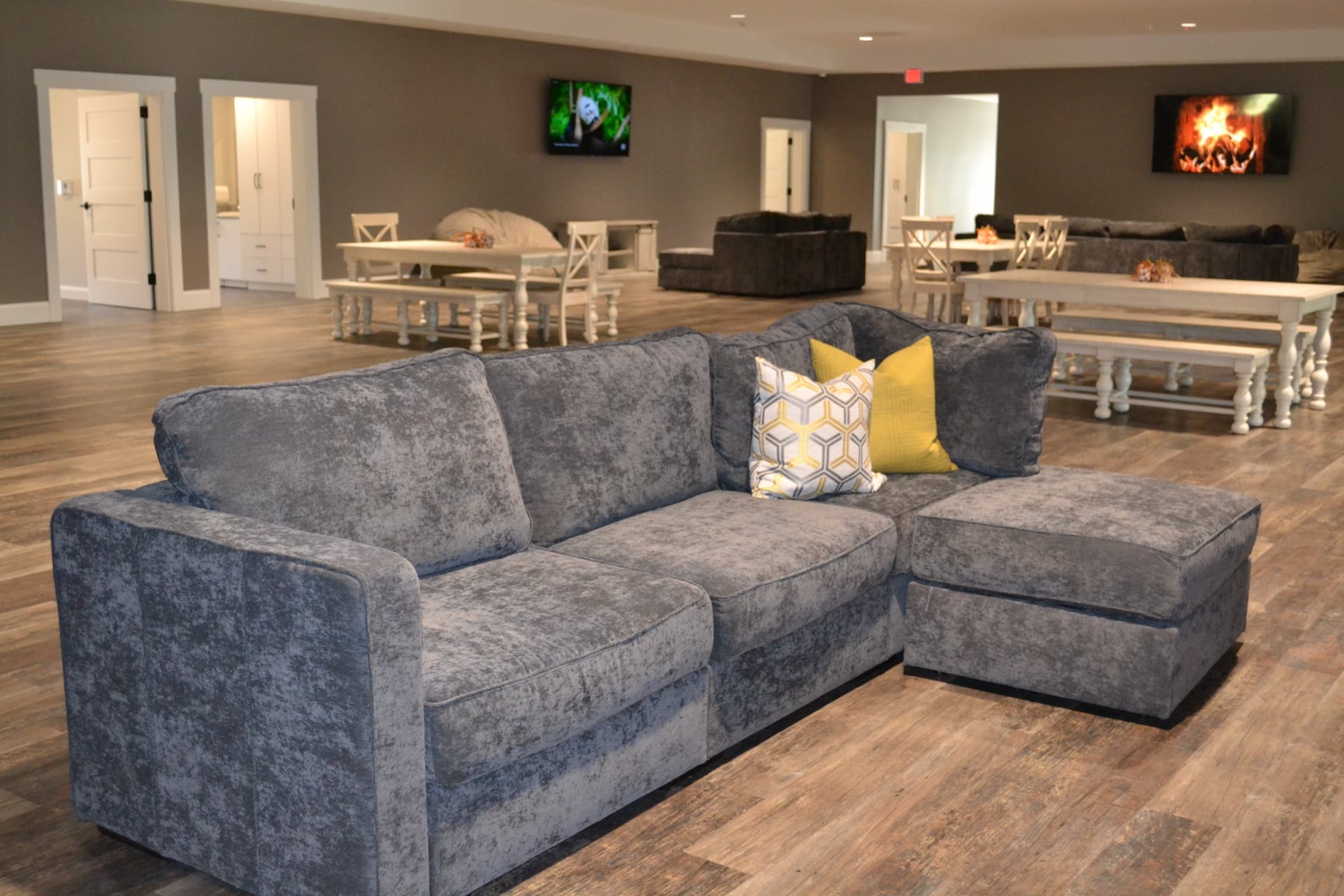
The spacious common area has many seating pods. Photo courtesy of Beth Olivieri.
Each of the 10 400-square-foot bedroom suites includes handicapped accessible bathrooms and showers along with a washer and dryer. Every residential suite is equipped with access to oxygen and medical gas to provide suction should the need arise. A staff proximity meter detects each time a resident is monitored by a nurse or other support staff.
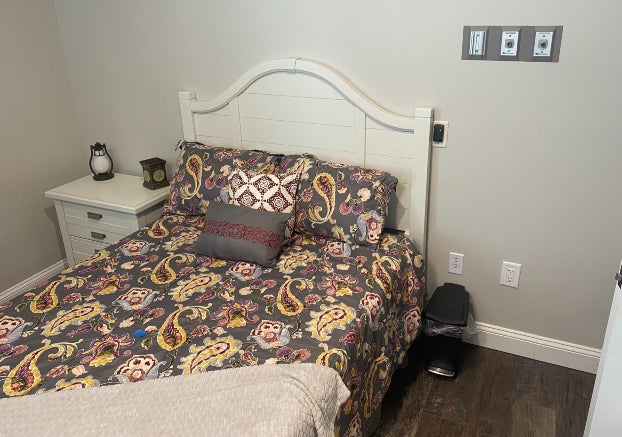
Every residential suite is equipped with access to oxygen and medical gas to provide suction should the need arise.
Also located on the property is a working farm featuring two miniature horses named David Bowie and Iggy Pop, three Great Pyrenees dogs, several goats and a Labradoodle named Morrow, who will visit and provide companionship to the residents. Depending on their comfort level, the residents will be able to interact with the animals as a form of therapy.
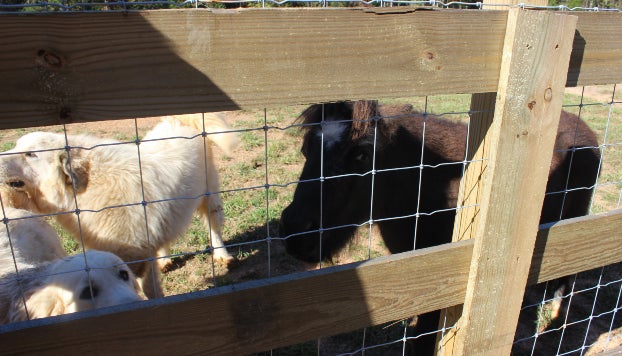
The facility includes three Great Pyrenees dogs and two miniature horses.
There is also a courtyard at the back of the facility that will feature handicapped-accessible sensory gardens, planned by local master gardeners affiliated with Stanly County Cooperative Extension.






